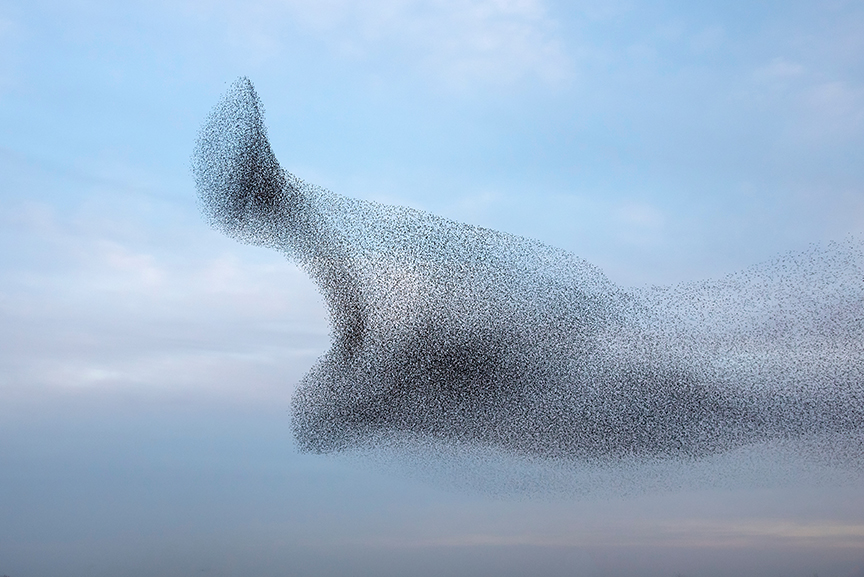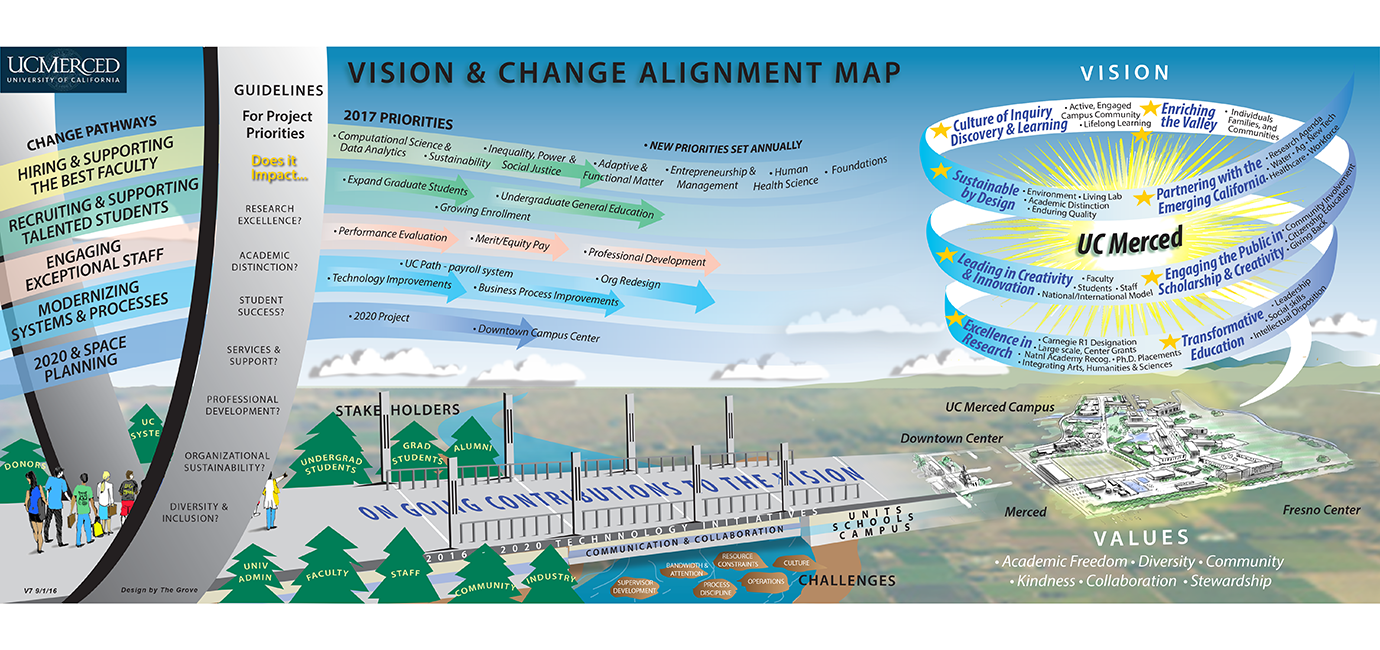Responses to the Grove’s Strategic Visioning Origins Call Chat Questions
David Sibbet agreed to respond to the questions that were asked in the chat during the Strategic Visioning: Origins and Theory zoom call held August 8, 2024. Here is what he thought would be worth sharing.
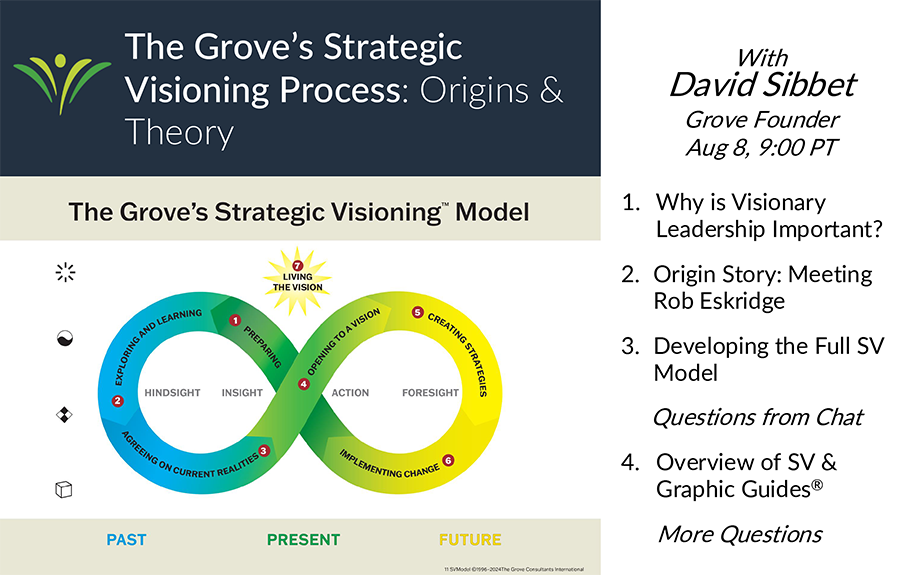 Responses to the Strategic Visioning Origins Chat Questions
Responses to the Strategic Visioning Origins Chat Questions
David Sibbet agreed to respond to the questions that were asked in the chat during the Strategic Visioning: Origins and Theory call held August 8, 2024. Here is what he thought would be worth sharing.
(Washington, DC): This is a big question, but I’m going to ask anyway: I work with lawyers, doctors, law enforcement, engineers, and similar groups— I’m curious how these sorts of frameworks/diagrams land with them, and how you manage any visceral reactions you might receive in response?
I answered this question in part during the session, advising that people hold the SV model lightly, and appreciate its value as a framework—more like a window of distinctions—and use it for common language as people customize their own pathway through the process. I also stress that the different Graphic Guides® function like rooms in a house of conversations and are intentionally making room for all points of view.
But the various professions you mentioned do have biases in terms of how they work with information. Lawyers are trained in text and argument. Discussion and debate are certainly possible within an SV approach, but the visuals might not be so appealing. Doctors are steeped in evidence-based medicine, but many do accept intuitive knowing as part of the work. You could relate to them by stressing the four flows and consciously respecting all levels of understanding. Law enforcement has a bias toward rules and laws, as do engineers. However, the latter are accustomed to visual presentation of ideas and the orderliness of the SV process generally appeals to them. I’ve never had a problem working in high-tech with engineers. They love the visual approach. Karen’s response is relevant here:
(Germany): I think with any group, there will be resistance, questions, skepticism to any models/diagrams. Encouraging curiosity, asking questions, openness, acknowledgment has been helpful for me in using the model🙂
(Templeton, CA, USA): I am fascinated to learn that there is meaning behind the vertical access of the figure-8 diagram in addition to the horizontal time access
Models and frameworks that stress horizontal linearity easily fall into the trap of working only one or two of the four flows. Having both past and future dimensions and also distinguishing all four levels of constraint is like the different between 2D and 3D imagery.
(Ashburn, VA, USA): 💯 “dialogue over docs (lots of hearts and thumbs up).
(Washington, DC): How does this model differ from Weisbord’s approach that addresses the past, present and future in his “future search” approach.
I acknowledged Marv’s application of visualization as supported by his awareness of The Grove’s work. The frame is a bit different in emphasizing finding common ground in both analysis of current realities and future scenarios. But Future Search does come back to action planning after the visioning, like the SV process. Future Search also sees the talk about context as being in the present. While in common it seems that looking at external trends and “like abouts” and “sorrys” are present, anything a person can identify and describe in language is actually already “past.” This kind of distinction is not necessary to have a good sharing about the context and SPOT.
(Colorado Springs, USA): Are there any lessons learned from the emergence of the internet that might apply to the emergence of AI?
I thought about this after the session and several things came up.
- Having a new territory of possibilities opening as it did with the Internet and now with AI results in a “land rush” of new entrants, a lot of over-promising, and speculators wanting to make as much of it as possible during the beginning surges. It is interesting to ask yourself, who is selling shovels and trousers to the new settlers?
- Both are hugely disrupting the communication practices in organizations. There are many who say that organizations are shaped by decisions about how to communicate. During this disruption many who were competent in the old ways will be devalued.
- Both provide opportunities for process consultants who can help people navigate the new territory.
- Both involve a period in which new patterns and standards are forming and unclear.
I think there is one rather large difference. The Internet initially spotlighted the potential of groups of people networking and sharing in more effective ways. Phenomena like The Well inspired a lot of hope. Large companies used computer conferencing to sharing solutions in new ways. Remote work was supported. Eventually the internet became a backbone for the Internet of Objects, but that wasn’t part of the dominant narrative.
AI’s dominant image, on the other hand, centers on the awesome capabilities of machine learning, LLMs, and the like. There isn’t an overt emphasis yet on its role in human networking, except questions about how the algorithmic biases might make it even harder for marginal ways of thinking and expressing things to be shared. There are of course people imagining networks of AI-augmented assistants working at advanced levels of capability, but by and large the conversation is not about an evolution in social capability.
(Charlottesville VA): I am interested in the relationship between these models and the Team Performance Model. As a Coach for 20 years and exec before that, getting leaders and people to DO this is key 😉
Frameworks do emphasize different things. The Team Performance Model emphasizes the “turn” to a committed direction, because the difference between teaming and working in groups is the level of interdependence and coming together at stage four. The emphasis in SV is on cycles of conversation, because the way north star and other kinds of visions work is through inspiration and engagement. Both, however, assume the need for the four flows of human process to work together, and alignment in both systems is assumed to be stronger when they do. It is possible to move through the Team Performance Model with the same cycling pattern as SV. In process theory, the first four stages are a trial-and-error process, until the pattern of combination is determined. Teams sometimes start with a problem, work back to clarifying about it, then examine the trust and purpose levels to understand where the difficultly lies. Jen’s response is relevant here:
(Richmond, VA USA): Last month I did a combo TPM/Strategic Visioning workshop (4 days) and it was AMAZING! Have never had the chance to do both together. Having the TPM to harness the work to (and I use “the work” broadly b/c it wasn’t just the work product but the dialogue/their behaviors/etc.) was so compelling as “model as map”… using the TPM to map against the strategic visioning. And I compiled their wall maps in a Playbook, because they were so anchored to those visuals (esp. the History Map and the Bold Steps map). And I’m happy to share my design if anyone is interested. Hit me up here or on LinkedIn. I’m sure it could be improved!
I have done Strategic Visioning with groups to great success. I’m curious about how to best tee up the process 12-18 months later, referencing activities from the past workshop but honoring what has changed (people and projects) in the time since?
Reviewing the original big charts is very effective. A good second best is 11”x17” printed versions, which on reading are almost the same size to the eye as the chart in the meeting room. A third is to drop chart photos into a slide deck with additional narrative. Celebrate the evolution of thinking at the same time.
(Germany): I am interested in learning more about the Team performance model. I introduced recently in group brainstorm of where the team is, but leaders were wondering how they can apply more on day-to-day basis with their teams. The Graphic History guide was great in helping to align everyone on history of team and release emotions and energy🙂
The most comprehensive written treatment of working with Graphic Histories is in our Team Leader Guide 2.0, available at www.grovetools-inc.com. My book, Visual Teams: Graphic Tools for Commitment, Innovation and High Performance, is also loaded with information. You can also go to The Grove’s website and see the video from the last TP Origins Call.
(UK): We know all groups are different – what are the key factors that support a group with setting up for success?
- Trusted leaders supporting the process.
- Clarity about the purpose of the process—understanding which crossroad issues need to be addressed with alignment.
- Clarity about who will be involved and why. If success is understood to mean the whole system knows where it is heading, then having a robust stakeholder process will be necessary.
- Clarity about how the information generated will be shared and stored. Transparency really helps.
- Understanding about who the process decision makers are. Having a process design team that reflects key constituents turns out to be very helpful in being successful and sharing the process design in a visually accessible roadmap.
- Consistency of pacing to sustain momentum.
(Charlotte, NC USA): What do you notice about changes in narratives and dialogues for both people and the organization as the strategic visioning process unfolds? What are the key principles and approaches do you employ to help people evolve during the process?
I shared about a recent client that was facing a deeply polarized set of units within the organization. Our approach was to encourage people to respect that it takes time, to encourage a history-telling process that was non-judgmental and inclusive of all points of view, and trust that the system would begin to flow and soften as people listened to each other. The narrative will evolve by itself as more and more voices are considered. We also notice that engaging people around their metaphors of organization in the context of vision mapping is a very good way to get people to loosen up from an old narrative that is too narrow and that focuses on ways of working that don’t really match the situation.
(Templeton, CA, USA): Have you had the opportunity to work in an augmented reality or virtual reality space? 🙂
I spent a good part of 2006–7 building out a replica of The Grove in Second Life (search for The Grove). It still exists, and a group of us have been meeting in a second island called Third Life since them. I’m not doing formal planning in this environment but do use it for show and tell. The panorama of a meeting room that I shared in the presentation was a screen shot taken from The Grove HG in Second Life. Another perspective is below—it is a 3D environment. Recently our associate Brian Tarallo introduced me to Meta’s AR system. He is quite convinced collaborative design is possible with these systems.
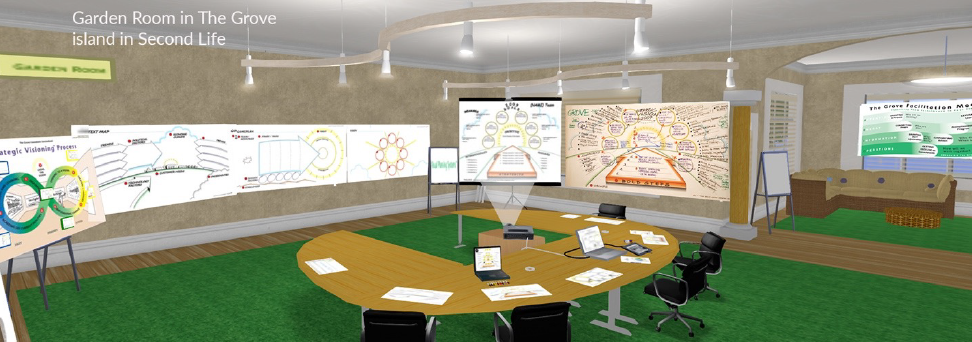
Erik’s response in chat is relevant: He said: Among other things, I was the customer of The Grove’s during Covid, and we did an entire strategic visioning process to create a new college within a university. Everything was done on Zoom.
In a way the highly developed graphic environments in Mural and Miro represent a kind of “virtual reality” although the term isn’t usually used to describe these virtual canvasses.
(VA): Are you saying that in this process and approach the “Visioning” is equivalent to, or results in, a strategy as is being differentiated from strategic planning ala Martin and Rumelt?
I’m not deeply familiar with these two, but a cursory review of Rumelt’s approach suggests it is very similar to Rob Eskridge’s Growth Management Process. A lay definition of strategy is that it is a story about how to realize your vision and goals. To this extent cause analysis and problem solving become very helpful in moving forward. Grove clients often translate their strategic visioning work into formal strategies with goals and plans.
(she, her): Related. What does a high-quality north star look like?
I don’t think there is one answer to this question. To be a North Star (which is a metaphor, of course), it needs to be seen and understood clearly enough by the people articulating it and be constant enough that it provides directional guidance. For some organizations it is a statement that has gained complete alignment. For others it is an image with key agreed-upon vision themes. The main thing is to work until everyone involved says “That’s it!” The Grove’s north start statement is “Realizing Visionary Futures.” We both help people connect to their visions and follow through helping them realize them on the ground. Our bias is toward those clients who are working to create a thriving, sustainable future.
(Hamburg, Germany): Organizations and consultancies tend to make many “mistakes” compared to this model, and then I in my work end up with requests for Vision Maps, where I sense that many things are not done or clear. But at that point they had already spent 50 to 250k on their process. How can we turn it around with the use of SV?
It is tempting to have illustrators create pictures of visions that don’t really have system-wide alignment and understanding behind them. One would hope that leadership would be receptive to a conversation about what it will really take to implement the vision, and about the value of engaging stakeholders in the kinds of conversations SV supports.
(Baltimore Maryland):So, to clarify, (regarding your story about a graphic history) that the groups post in groups of cohorts based on when they joined the organization?
People post on the history individually. The “cohorts” I mentioned was simply a term I was using for a group of people that joined at the same time.” They don’t report as a group. I ask individuals from the group to describe what it was like at that time, and maybe invite a second person to add, then jump to a group that came later.
(Baltimore Maryland): (Re the SPOT Matrix) I have always had challenges getting the participants from problems to opportunities—need suggestions to motivate the thinking.
I do what I did in the presentation which is ask people to do a thought experiment and think of a problem or weakness in their organization. I then ask if they can do this without having an idea that things could be different or better. I then wonder aloud if those ideas about how things could be better might be opportunities? I also explain that a good opportunity is a real choice you could make that builds on a strength or solves a problem. Someone always comes up with one.
(Charlottesville VA): Curious if you have leveraged Appreciative Enquiry and their SOAR approach – it is more positive/future focused which seems like it would fit nicely… … but threats and problems are replaced with Aspiration and Results…
The SOAR model seems to be reflect SPOT analysis with its focus on Visioning and Goal setting (i.e. “Results”). I am persuaded that positive reinforcement of what’s working is the direct route to effective change. I’ve also been influence by the “Positive Deviance” approach of Jerry Sternum, who found that in any system there is always a subsystem that does things differently. If you can find those elements that support your vision and reinforce them, the system will begin to change. There is less resistance because the “deviance” is already in the system. I also think that my spin on Problems being “Disguised Opportunities” is an appreciate-inquiry stance. So in this sense I “soar”
(Ashburn, VA, USA): “Systems change based on creative tension and creative tension is the difference between the top-line and bottom-line situation.” Who said this again?? Missed it.
The source of this idea is Robert Fritz, who was included in Peter Senge’s Fifth Discipline.
(Templeton, CA, USA): I imagine an opportunity for the leader to share his/her positionality prior to playing the role of choosing what makes it to the board. By positionality I mean, who they are, what prominent stories are, and therefore what biases, may or may not inform their choices. This provides more transparency, and I would imagine would encourage a democratic relationship in this context. I wonder if others have experience with doing this as part of the SVP?
By the time a group is doing the Five Bold Steps and converging on a shared vision and bold steps, everyone has heard the leader (or leaders) express their points of view in many ways. Part of the skill of facilitating is making sure this happens—during the Context Mapping, SPOT Matrix and Cover Story work. As you will find if you download the SV Process Overview (on The Grove website under Resources), there are several additional activities that can be included to make sure everyone’s thinking is out on the table. When I suggested the leaders were critical to convergence and what gets added to the Five Bold Steps template, I didn’t mean to suggest that the leader “decides.” However, voicing their positions can be influential. Most of the time the process is consensual, and I would keep a close eye on how much true resonance with everyone any suggestion has. If I don’t see that resonance, then I will invite more suggestions and work.
(Charlotte, NC, USA) Some may say this is a matter of semantics, yet I do see it trips people up. How do you differentiate the concepts of Vision and Mission? and add to that Purpose?
Organizations will use these words differently, so there is no standard that is assuredly workable except to find out what the local meanings are. As a rule of thumb, I think of “Purpose” and
“Mission” as the organization’s reason for being. Some would say the “Mission” is the North Star. Other would say the “Vision” is the North Star and the mission is the nearer term “objective.” Yes, it is semantics. It is very important that whoever will be communicating the vision has clear understanding of how these terms are defined.
Erik adds: One way to look at this is to look at the vision as an aspirational statement as to how to fulfill the mission. Missions are concrete, and not aspirational.
Deb also had a post about this: Some clients like the simplicity of vision being WHERE we are headed, mission being WHAT we do to get there and values being HOW, or the behaviors we use to do the mission to head toward the vision.
: It seems that this process supports the positive aspects of evolving in a VUCA world—i.e. Vision Understanding Certainty and Adaptability.
Very nice, although as much as people hope for certainty, I’m not sure that element is attainable. One of the reasons for creating a process roadmap for an SV process is to provide certainty about when different meetings will be held and on what platforms. Getting certainty where you can helps for sure.
(Portland, OR): Do you find you need to go into the theory with the visionary leader in the planning process to get them on board? I imagine some are more interested in the theory than others, but that it is important in getting their deep understanding and support of the process.
We usually explain the Four Flows perspective as common language for designing any process. If they are interested in the underlying theory, we might get into it, but it rarely goes to that level. Consultants learning the process, on the other hand, are often interested.
(Louisville, KY): How permanent is the North Star Vision for an organization? As you repeat an SV process with a client (say, 5 years later) does the North Star Vision and Vision themes stay the same? Or do you “start all over”?
Clients often have a central theme that persists and may be incorporated in a motto or central headline in a vision. But the shared vision themes that often surround such a central focus do change along with the changing environment and its attendant challenges. Five years is a long time.


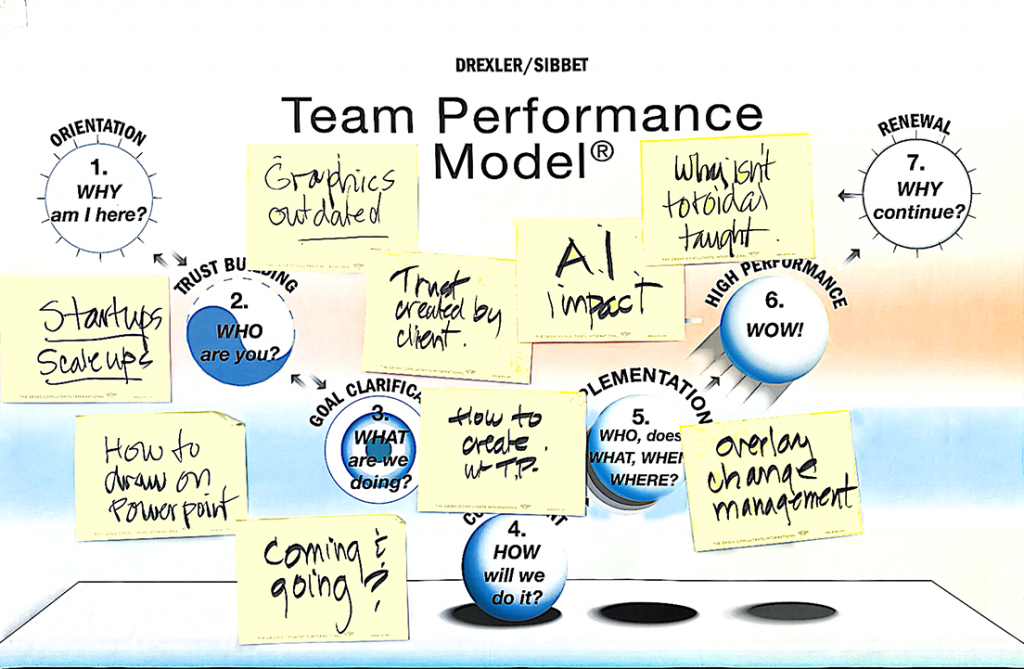
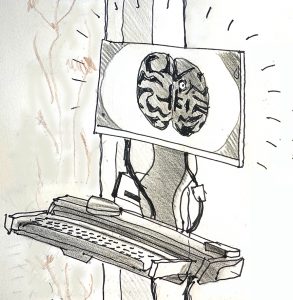 Thirty minutes later after a drive to a nearby emergency room I was in a CAT scan and found that I had a half inch long hemorrhagic bleed (stroke) on the surface of my right, central cortex, near my left side motor controls. I could feel the skin on my leg. I could move it with my big muscles, but I was not in control of it. Needless to say, I was on my back at 30 degrees angle the next two days, awakened every hour for a complete check on my cognition, eye movements, hands, leg lifts—all through the night.
Thirty minutes later after a drive to a nearby emergency room I was in a CAT scan and found that I had a half inch long hemorrhagic bleed (stroke) on the surface of my right, central cortex, near my left side motor controls. I could feel the skin on my leg. I could move it with my big muscles, but I was not in control of it. Needless to say, I was on my back at 30 degrees angle the next two days, awakened every hour for a complete check on my cognition, eye movements, hands, leg lifts—all through the night.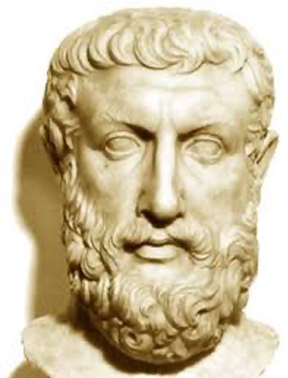
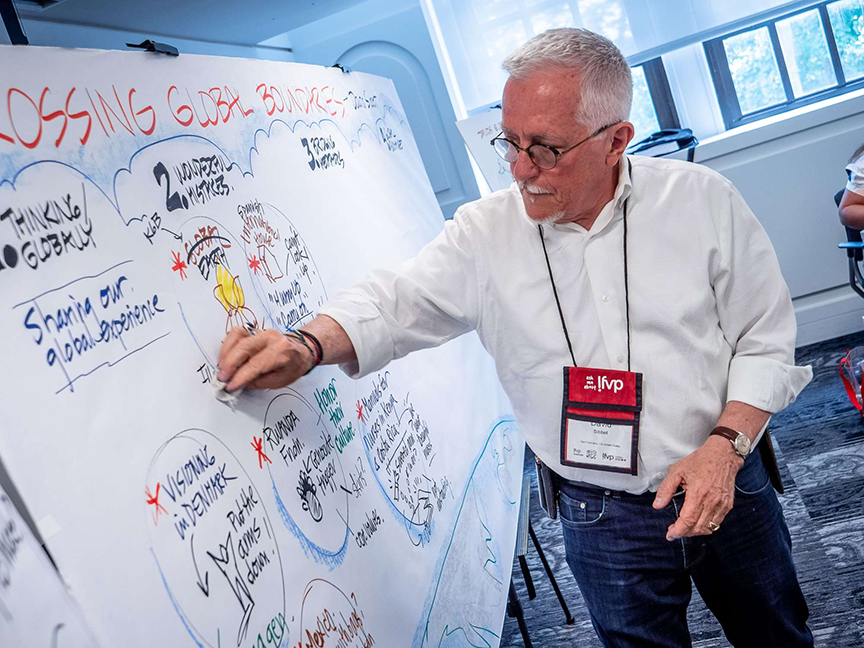 Is Visualization Both Integrative and Disruptive?
Is Visualization Both Integrative and Disruptive?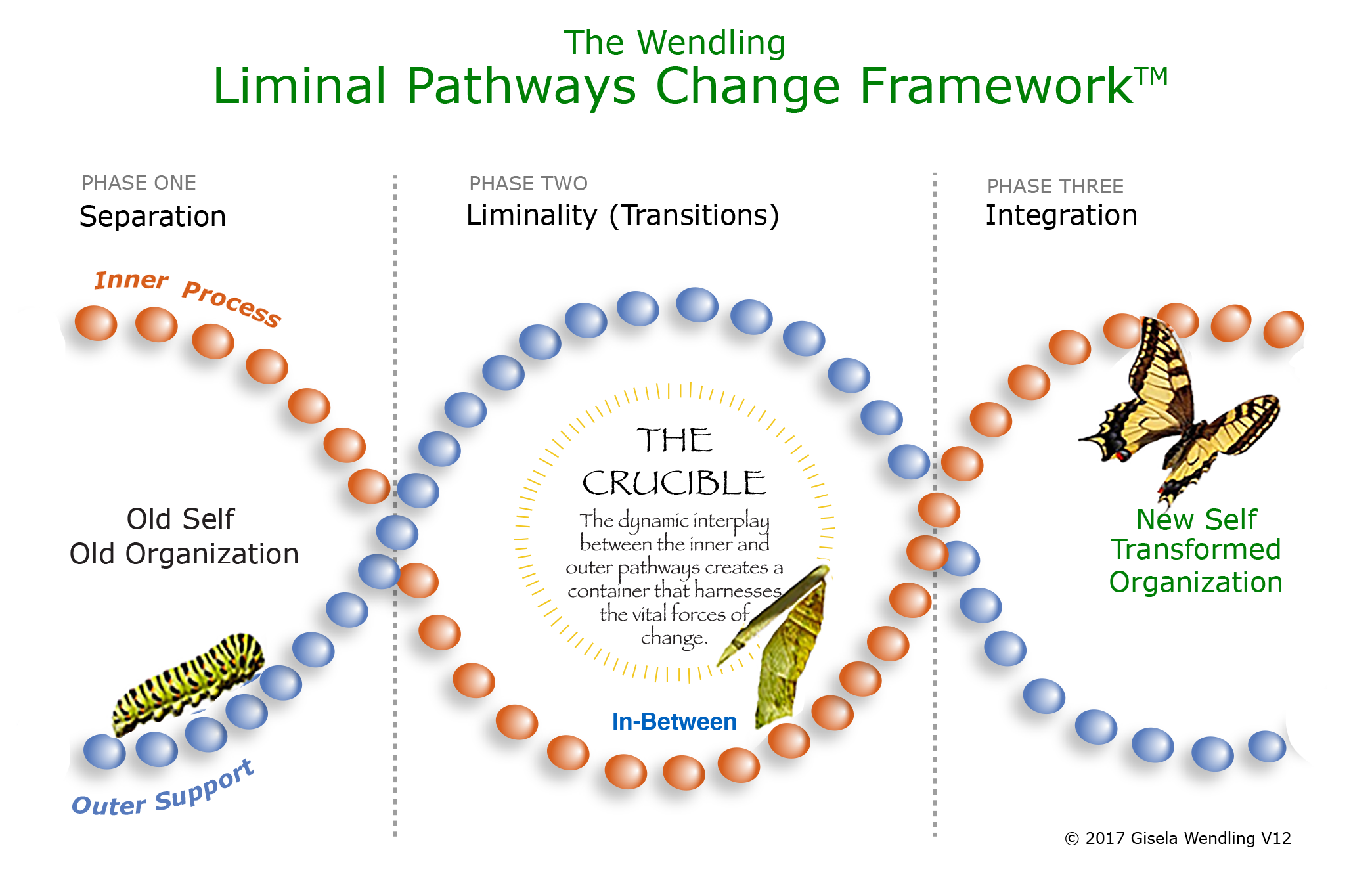 I’m doing more of this with colleagues. Recently two of my friends and GLEN colleagues, Alan Briskin, and Mary Gelinas, have been writing a book about Three Field Awareness. They are working to integrate research in the areas of personal, social, and noetic fields, and of course interleaving their own long practices. Mary is deeply engaged in somatic work, taking the language and deep patterns of our embodied knowing seriously. Alan has been studying collective wisdom for years. These matters defy easy representation. I have been working with them to see if there are some ways to visualize these concepts without falling into the trap of being inappropriately “clear.”
I’m doing more of this with colleagues. Recently two of my friends and GLEN colleagues, Alan Briskin, and Mary Gelinas, have been writing a book about Three Field Awareness. They are working to integrate research in the areas of personal, social, and noetic fields, and of course interleaving their own long practices. Mary is deeply engaged in somatic work, taking the language and deep patterns of our embodied knowing seriously. Alan has been studying collective wisdom for years. These matters defy easy representation. I have been working with them to see if there are some ways to visualize these concepts without falling into the trap of being inappropriately “clear.”